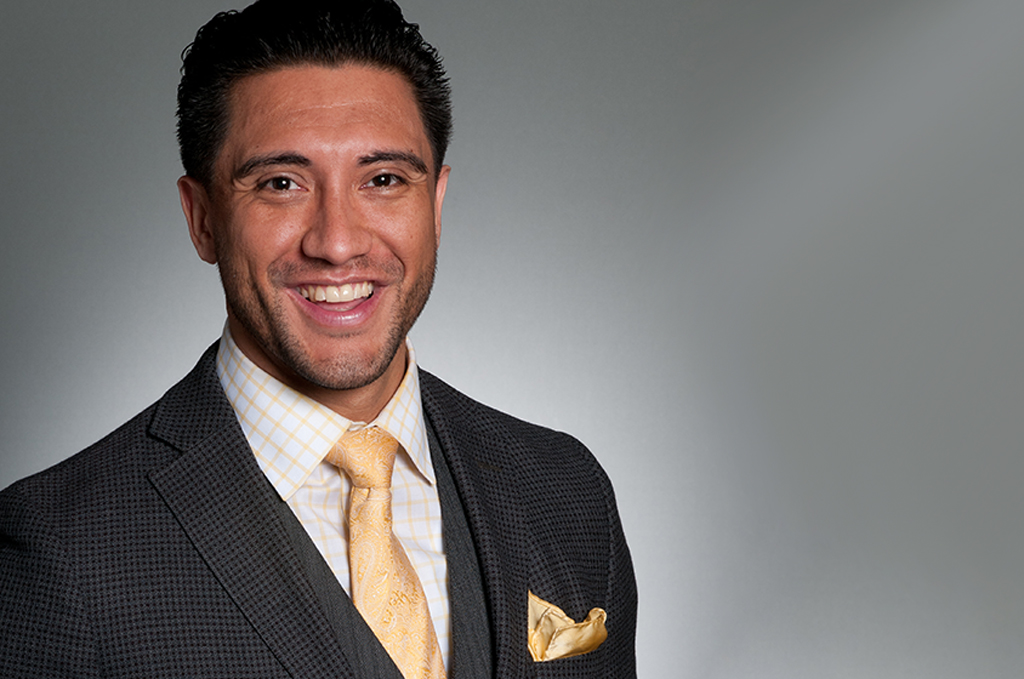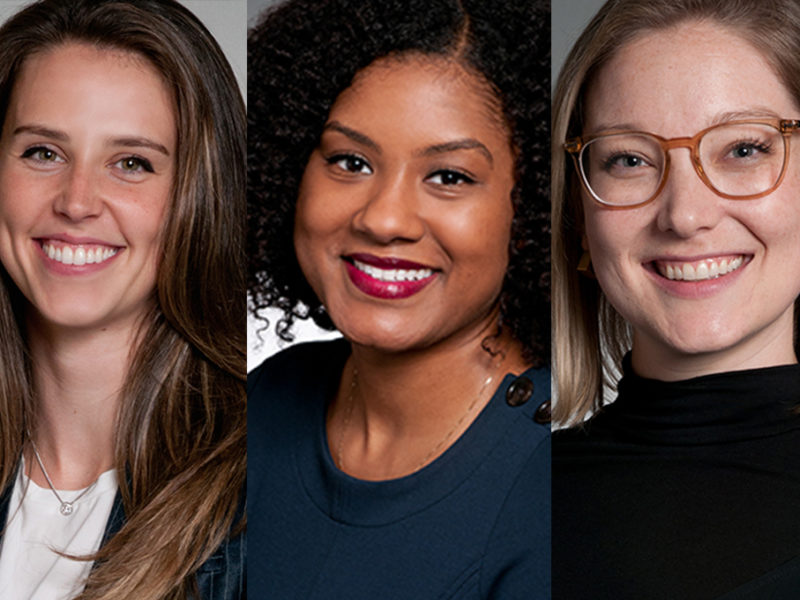
This Baumhart Scholar is Breaking Down Chicago’s Zip-Code Barriers
In Chicago, zip code matters.
As we’ve explored over the years, where you’re born has a quantifiable impact on the quality of life you can expect. As a consequence of historical inequities whose effects persist to this day, geography touches every aspect of life for Chicagoans, and not always for the better.
Daniel Cervantes wants to fix that.
In his role as the Senior Vice President of Programs for the organization Skills for Chicagoland’s Future (“Skills”), Cervantes creates models that are designed to liquidate the “zip code barrier” that stifles accessibility and prevents equity from proliferating across the city. As a student in the Baumhart Scholars MBA program at Loyola University, Cervantes is on a mission to unify community impact with business world practices that can amplify the impact of Skills’s programs.
We sat down with Cervantes to learn more about how Skills brings its mission to life, where his passion for purpose-driven work comes from, and how the Baumhart Scholars program is helping him to tackle the geographic inequity challenges facing Chicago.
What is the importance of purpose-driven work in the business world?
Our communities thrive when businesses open up, creating economic corridors and extending opportunity to residents. Organizations that are purpose-driven, beyond a sole focus on profit, develop a competitive advantage by taking a holistic approach with respect to identifying the value all stakeholders bring. An outward focus on its employees, customers, communities, etc. in which they serve spurs brand and service loyalty, innovation, and an overall sense of inclusion.
What is your current role? How does social impact factor into the work you do?
I serve as the Senior Vice President of Programs for Skills. Skills, a nonprofit founded in 2012, aims to be the “zip code equalizer” and network for the unemployed and underemployed by connecting them to jobs. We start with employers, establishing a strategic partnership in which Skills serves as an intermediary that creates demand-driven solutions for employers to get the unemployed and underemployed back to work. In my role, I am responsible for overall strategy and delivery of Skills’ programs and services for job seekers, including direct placements, youth focused programs, delivery of replication consulting services, and the incubation of new pilot projects.
Since launching in late 2012, we’ve been able to change the economic trajectory of over 7,000 residents who primarily reside on Chicago’s South and West sides. Although a job is not a silver bullet, it sets in motion an individual’s path towards upward mobility by eliminating the stigma associated with gaps in employment. What starts off as mere philanthropy in the eyes of employers becomes a recognition that hiring from underrepresented groups is a business imperative. Skills’s direct placement, career pathways, and job preparedness services are just some examples that have allowed residents to ease away from federal assistance programs and reengage as contributing members of a city or state’s tax base.
When did you first discover your passion for the work you do now?
I don’t think I ever “discovered” it. It was embedded in me by the way I was raised. I was one of seven children of Mexican origin, and my parents had a limited education, so we did not live in the most affluent neighborhoods. As such, opportunities were scarce and the notion of mentors or professional networks was almost non-existent. I started my career in the private sector where I gained an appreciation for role of business. I knew I wanted to stay close to an organization that leveraged the impact that business can bring to a community while getting closer to bringing innovative solutions directly to populations and communities that were underrepresented and/or underinvested. Under these circumstances, in 2010, I joined Skills, a nonprofit, as a founding executive leader on the basis that a zip code should not determine a person’s economic trajectory.
How does focusing on geographic economic disparity solving broader social problems?
Every organization, regardless of size, is limited in resources and time. At Skills, we focus on the talent needs, but aim to be an extension with a focus on tapping the unemployed and underemployed people in communities. Organically, many of our placements are from neighborhoods in the South and West sides, but in recent years, we have doubled down our efforts by intentionally targeting the ten communities with high unemployment in the Chicagoland area. We recognize that broader social problems exist, and, in that respect, we believe in staying in our lane. To those ends, we collaborate with other community partners that specialize in other areas such as youth mentorship, housing services, mental health, and social support to offer a broader array of wrap-around services. Through this holistic approach, we believe it is a start towards addressing broader social problems that may exist as a consequence of economic factors.
How does the Baumhart Scholars Program empower you to pursue your purpose with Skills?
On a personal level, the program equips me with the academic rigor, values, strategy and networks to amplify our mission and impact. With the marriage of purpose and profit at its core, the program has enabled me to think more broadly of our professional partnerships with business. Leveraging our years of experience in workforce and economic development, along with our vast network of partners, I look at a business in a broader context to better understand what is the underlying driver—corporate social responsibility, diversity and inclusion, operating need, etc. In addition, the program does a fabulous job of putting Scholars and their respective organizations in a position of leadership by linking them with various speaking engagements.
What would you tell someone who was interested in learning more about how the Baumhart Scholars Program can impact their career?
Simply said, do it! Regardless of whether you are a professional in the public or private sector, the Baumhart Scholars MBA program extends the fundamental components of graduate studies, but with a purpose-driven layer added. The network and mentorship are of great value, and the cohort you are selected in becomes a second family. I would encourage you to attend an informational session, visit their website, or reach out to a Scholar.




